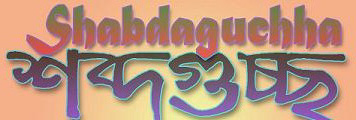


|

|
Book ReviewNicholas Birns, Theory After Theory: An Intellectual History of Literary Theory From 1950 to the Early 21st Century, Broadview Press, 2010; 345p, Price: $26.95Back to Issue 49_50 Back to Front Page |
Hassanal Abdullah Theory After Theory: An Essential Book for WritersLiterary theories, criticism, the New Critics, the New York Intellectuals and the chronological advancement of the critics and the critical thinkers are the main focuses of the book, Theory After Theory. Prof. Nicholas Birns, one of the growing American giants, has smartly penned down the intellectual history of literature and the literary arguments of about the last half of the twentieth century. "This book is intended both as a handbook for students to learn about theory and an intellectual history of the recent past in literary criticism for those interested in seeing how it fits in with larger patterns of style and culture," mentions the author. So, as a professor, on one hand, he fulfills his commitments to inform his students, and on the other hand, through the interpretation of "ideas of various theorists," such as Foucault, Derrida, F. R. Leavis, Harold Bloom, Roland Barthes, Wayne C. Booth and many more, he reconfirms the importance of theoretical criticism which in fact enormously contributes to reshape the new era of literature. Moreover, "critical interpretation," he strongly suggests with various arguments and instances, is a continues "act of creation." It helps the readers and, in a large scale, the writers themselves, to know the dancer from the dance, though it always has to be "understood in its historical and intellectual context." Hence, the significance of knowing the French Revolution, the Marxist point of view, the Harlem Renascence etc, parallels with the knowledge and complete understanding of the Feminist Theories, the Anti-raciest Theory, and the Post-Colonial Theory; the upward mobility of the rich and the struggle of the poor as well as the creative minds of the twenty first century. Therefore, though the book focuses on the American and European literary elites, it eventually spans its intellectual eyes throughout the whole world in considerable contexts.
|